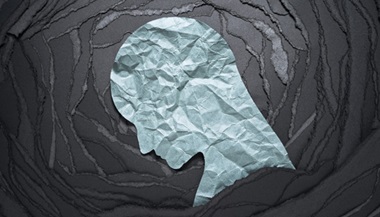Anxiety and Heart Disease
Featured Expert:
The association between anxiety and heart disease has not been as fully studied as the relationship between depression and heart disease.
However, Una D McCann, M.D., director of the Anxiety Disorders Program at Johns Hopkins Bayview Medical Center, believes the connection is strong.
Anxiety and the Development of Heart Disease
“It’s my view and my personal clinical experience that anxiety disorders can play a major role in heart disease,” says McCann. “I believe that a really careful look at anxiety would reveal the ways it can severely impact heart disease, both as a contributing factor and as an obstacle in recovery.”
A natural reaction to a sudden heart attack can be similar to post-traumatic stress disorder:
- You’re likely to be shocked by your near-death experience and extremely hesitant to do the things you used to do.
- You might constantly relive the life-threatening event, and avoid the activity or place associated with the heart attack.
- Recurring anxious thoughts may impede your ability to get regular sleep.
- Your thoughts about what lies ahead may be extremely negative and cause a drastically foreshortened outlook of the future.
The Effect of Anxiety on the Heart
When someone is anxious, their body reacts in ways that can put an extra strain on their heart. The physical symptoms of anxiety can be especially damaging among individuals with existing cardiac disease.
Anxiety may have an association with the following heart disorders and cardiac risk factors:
- Rapid heart rate (tachycardia) – In serious cases, can interfere with normal heart function and increase the risk of sudden cardiac arrest.
- Increased blood pressure – If chronic, can lead to coronary disease, weakening of the heart muscle, and heart failure.
- Decreased heart rate variability – May result in higher incidence of death after an acute heart attack.
Anxiety and Heart Attack Recovery
Anxiety disorders come with a high degree of fear and uncertainty. When this fear and certainty keeps the heart attack or heart disease patient from following the advice and treatment plan of their cardiologist, it can have a major impact on recovery. Anxiety can interfere with:
- Sticking to prescribed exercise regimens
- Taking prescribed medications
- Following through with a healthy diet
- Getting a proper amount of quality sleep
- Reconnecting with friends and family
- Confidently resuming job career and family responsibilities
Different Types of Anxiety Disorder
Anxiety disorders fall into several categories. Here are a few of them:
- Panic disorder – can be associated with cardiac disease or mistaken for heart attack. Feelings of extreme agitation and terror are often accompanied by dizziness, chest pains, stomach discomfort, shortness of breath, and rapid heart rate.
- Post-traumatic stress disorder (PTSD) – a condition that can follow a shocking or frightening incident or sudden, life-threatening event such as a violent crime, major accident, or heart attack. A person suffering from PTSD often has trouble dealing with anything associated with the incident that caused their condition, and experiences feelings of jitteriness and detachment.
- Obsessive-Compulsive disorder – People with OCD will manage unreasonable thoughts and worries by performing the same actions over and over. For example, an individual obsessed with perceived cardiovascular symptoms that have been checked and cleared by a physician may compulsively research them or find new ones for hours on end.
Distinguishing a Panic Attack from a Heart Attack
Panic attacks and heart attacks can share similar if not identical symptoms. Anyone suffering from sudden and severe chest pain—whether being treated for anxiety disorder or not— should go to the emergency room. The physician will test the patient’s blood for specific heart muscle enzymes. If none are found, it’s usually not a heart attack.
A cardiologist sensitive to the issues of anxiety and depression will know how to sort out panic attack symptoms from heart attack symptoms, and will be able to refer the patient for treatment for panic disorder or any other type of anxiety.
Stay on Top of Your Heart Health

Diagnosing and Treating Anxiety
It’s important to differentiate normal anxiety from the more severe type. Does the anxiety interfere with your family life or keep you from being productive in your professional life? Does it restrict you from engaging in the activities you like? If the answer is yes, then it’s the kind of anxiety that may require some degree of therapy or medical attention.
Depending on the duration, severity, and type of anxiety, treatment can include therapy, medication, or a combination of both. A common and effective method of treatment is cognitive behavioral therapy (CBT), which involves three main components:
- Anxiety management – The goal is to keep the patient from placing too much concentration on anxieties about the future that are impossible to control, and helpthe patient focus on the present. Anxiety management may encompass relaxation exercises, sensory focusing, and yoga techniques.
- Cognitive restructuring – People with anxiety disorders tend to “catastrophize,” or put too much weight in the possibility of disastrous or apocalyptic events. Cognitive restructuring—through patient-therapist give and take—presents a series of logical steps that aims to prove that distorting events and situations is not a healthy thing.
- Exposure therapy – Seeks to gradually and repeatedly expose the patient to the activity or environment that causes the anxiety. The successful result is reached when the individual can effectively manage the anxiety. Examples include overcoming a fear of crossing a bridge, successfully navigating a cross-country plane trip, or spending time in a location associated with an accident or crime.
Anxiety in Women
Women are about twice as likely as men to experience panic disorder, generalized anxiety disorder (PTSD), social phobia, and anxiety disorders when taken as a whole. Women are also more likely than men to get post-traumatic stress disorder, even though men are more likely to be exposed to violent and dangerous situations.
One reason may be that the types of traumas that women experience most—sexual trauma and rape—are more likely to lead to post-traumatic stress disorder. PTSD is one of the many types of anxiety that can put stress on the heart.
The Role of Genes in Anxiety Disorder
“Just like a major heart attack, a burn is a horrible thing, says McCann. “About 33% of patients who have really severe burns develop post-traumatic stress disorder. Which makes us wonder about the 66% who do not get PTSD. We think genes are a huge part of it. We’re currently researching whether this same genetic vulnerability holds true for cardiac disease.”
Johns Hopkins Women's Cardiovascular Health Center






